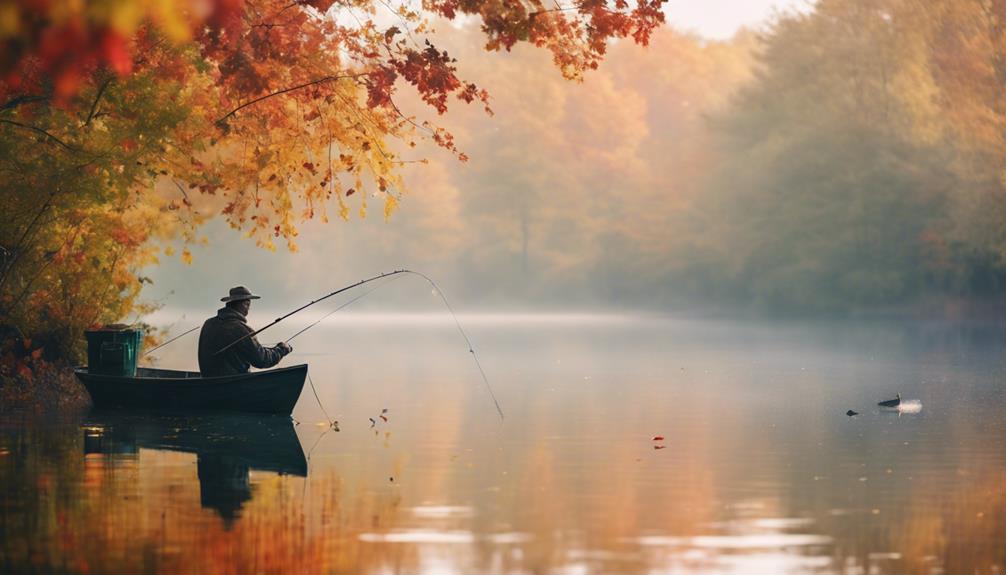Fishing is a beloved pastime for many, offering a chance to connect with nature, unwind, and enjoy the thrill of the catch. However, before you grab your rod and reel, an important question arises: do you have to have a fishing license? This guide will explore the ins and outs of fishing licenses, the reasons they are required, and how to acquire one. Whether you are a seasoned angler or a novice looking to dip your toes into the world of fishing, understanding fishing license requirements is crucial.
Understanding Fishing Licenses and Their Purpose
Fishing licenses are permits issued by government agencies that grant individuals the legal right to fish in specific bodies of water. The primary purpose of a fishing license is to regulate fish populations and ensure sustainable fishing practices. By requiring anglers to obtain a license, authorities can monitor fishing activities, track catch data, and manage resources effectively. This regulatory framework helps to protect fish species, maintain ecosystems, and promote responsible fishing practices.
Who Needs a Fishing License?
The short answer is: yes, in most cases, you do have to have a fishing license to fish legally. However, the requirements can vary based on several factors, including your location, age, and the type of fishing you intend to do. Generally, all anglers over a certain age (often 16 or 18) are required to obtain a fishing license. Some states or provinces may offer exemptions for specific groups, such as children, seniors, or veterans, so it’s vital to check local regulations. Additionally, certain fishing activities, such as catch-and-release fishing or fishing in designated areas, may have different licensing requirements.
Types of Fishing Licenses Available
When it comes to fishing licenses, there are various types available to suit different needs and preferences. Some common types of fishing licenses include:
1. Resident License: For individuals who live in the state or province where they plan to fish.
2. Non-Resident License: For anglers visiting a different state or province.
3. Short-Term License: Ideal for tourists or occasional fishers, these licenses are valid for a limited time.
4. Annual License: Typically offers unlimited fishing for a full year, suitable for avid anglers.
5. Specialty Licenses: Some regions may offer licenses for specific types of fishing, such as saltwater or freshwater fishing.
Understanding the different types of licenses available can help you choose the right one based on your fishing plans and frequency.
How to Obtain a Fishing License
Obtaining a fishing license is generally a straightforward process. Most states and provinces offer several options for purchasing a fishing license, including:
1. Online: Many government websites allow you to apply for and receive a fishing license digitally. This is often the most convenient option.
2. In-Person: You can visit designated locations such as wildlife offices, sporting goods stores, or authorized vendors to purchase your license.
3. By Mail: Some jurisdictions may allow you to request a fishing license by mail; however, this can take longer than other methods.
When applying for a fishing license, be prepared to provide personal information, such as your name, address, and date of birth. Some regions may also require you to complete a fishing education course, particularly for first-time anglers.
Cost of Fishing Licenses
The cost of a fishing license varies significantly depending on the state or province, the type of license, and whether you are a resident or non-resident. Generally, annual licenses are more cost-effective for regular anglers, while short-term licenses cater to those fishing infrequently. It’s essential to consider the benefits of obtaining a fishing license, as the fees often contribute to conservation efforts, habitat restoration, and maintaining public access to fishing locations. Moreover, fishing without a license can result in hefty fines, making it a wise investment for any angler.
Consequences of Fishing Without a License
Fishing without a valid license can lead to serious consequences. The penalties vary by location but often include hefty fines, confiscation of fishing equipment, and even potential criminal charges. Additionally, fishing without a license undermines conservation efforts and can negatively impact fish populations and ecosystems. To avoid these repercussions, always ensure that you have the appropriate license before casting your line. If you are unsure about the licensing requirements in your area, consult local wildlife agencies or visit their websites for guidance.
Exceptions and Special Circumstances
While most anglers need a fishing license, there are exceptions and special circumstances worth noting. Some states or provinces have designated days when fishing licenses are not required, often referred to as “free fishing days.” These events encourage people to try fishing without the barrier of cost, promoting the sport and conservation awareness. Additionally, certain locations may have specific regulations that allow for fishing without a license in designated areas or during particular seasons. Always check local regulations to understand any special circumstances that may apply.
The Importance of Supporting Fishing Regulations
In conclusion, understanding the question of do you have to have a fishing license is essential for responsible angling. Fishing licenses are not just a bureaucratic requirement; they play a crucial role in ensuring sustainable fishing practices, conserving aquatic ecosystems, and protecting fish populations for future generations. By obtaining a fishing license, you contribute to these efforts and support the maintenance of healthy waterways. So, before you head out on your next fishing adventure, make sure you have the proper license in hand and enjoy the great outdoors responsibly.
By following this guide, you will not only stay compliant with fishing regulations but also become a more informed and responsible angler. Happy fishing!
